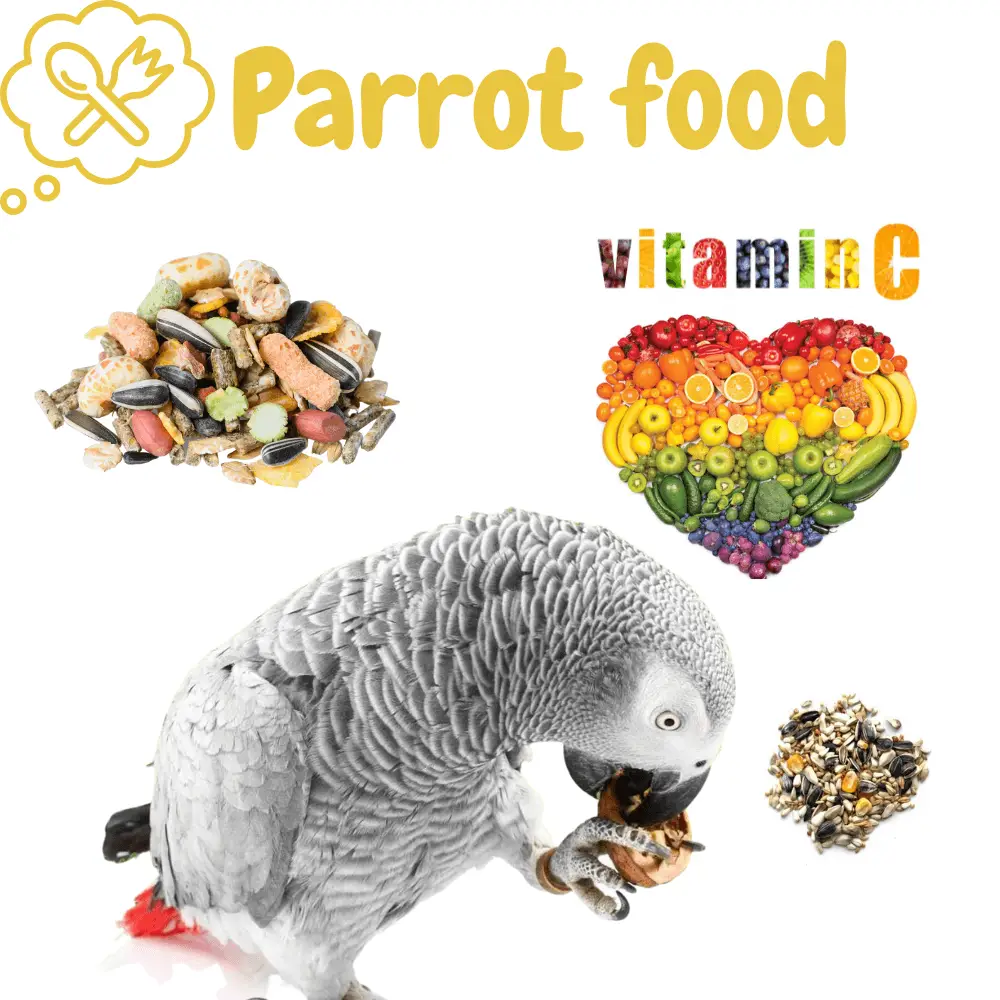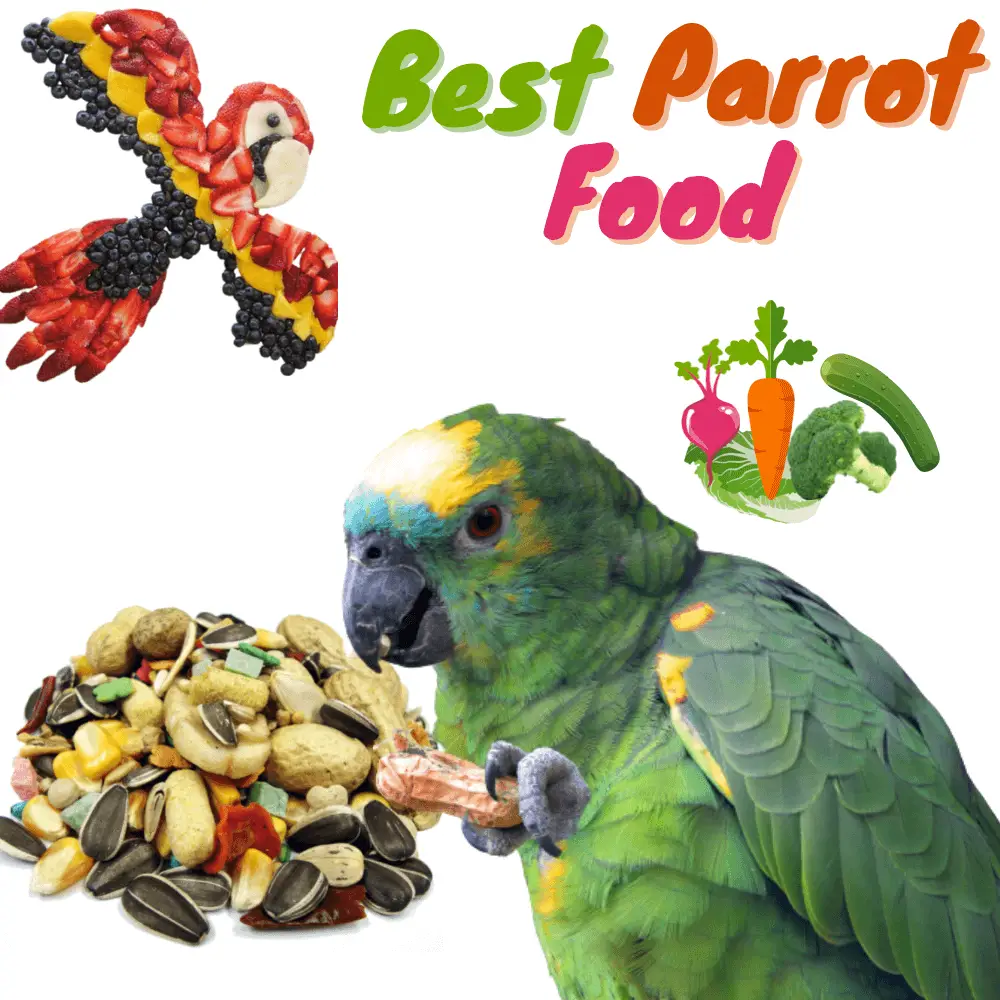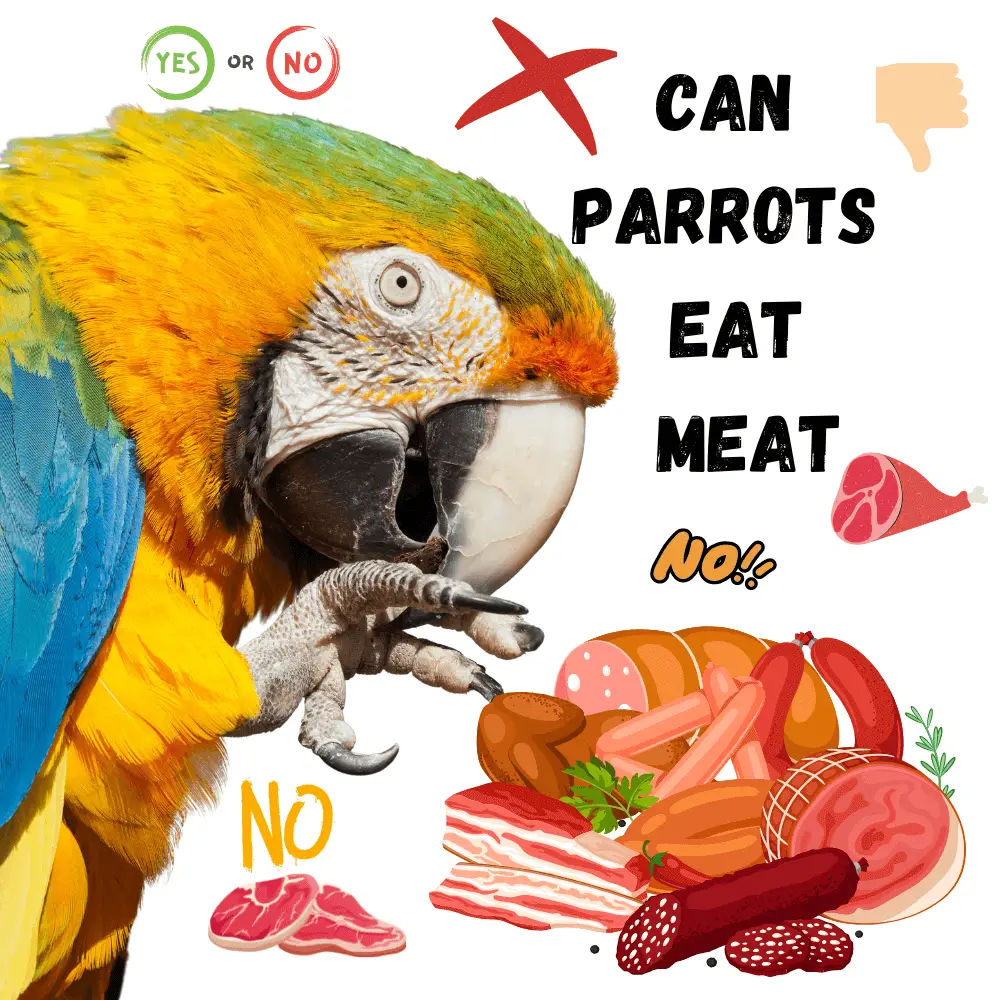Can parrots eat meat: Although parrots are omnivores, their digestive systems do not process animal foods well, so they cannot eat meat. The proteins they need are taken from plant foods (like legumes), so they don’t have to resort to hunting other living things.
Not having undergone a process of domestication, having them at home implies that one must imitate as closely as possible their living conditions in freedom. Below are the food recommendations for parrots, as well as the reasons why they cannot eat meat. So keep reading!
Why can’t parrots eat meat?
Parrots have an omnivorous diet. However, in the wild, they are not hunters, but opportunists: most of their day is spent searching for food in the branches of trees, safe from predators. If they ingest animal protein, it will come from an insect or other invertebrate.
Therefore, the consumption of meat (as well as that of other animal products) can cause damage to the organism of parrots. Here are some of them:
- Meat contains too much-saturated fat and cholesterol for a parrot. Heart and liver problems (such as fatty liver disease) may occur if this ingredient is fed to animals.
- Excess protein in the parrot’s diet can lead to kidney problems.
- Raw meat can carry a variety of pathogens and internal parasites, such as Toxoplasma gondii.
Feeding wild parrots

The opportunistic habits of wild exotic birds make their diet strongly determined by the availability of food in their environment. This is why their diet is not regulated at all, and they can therefore be prone to nutritional imbalances even in nature.
The list of foods most commonly eaten by wild parrots is as follows:
- tree fruits
- Berries and nuts
- Leaves of trees and bushes
- Seeds found on the ground
- Tree bark
- From time to time, a small insect within reach
As you can see, parrots don’t need to eat meat to stay healthy when living in the wild. In captivity, it’s exactly the same. They can suffer from a nutritional imbalance if their natural diet is not properly imitated.
That’s why we’ve given you some general parrot-feeding guidelines below. It should be noted that the specific diet of each will depend on the species and the health status of the specimen. It is good to consult a specialist on the subject.
How to feed parrots?

Controlling a pet parrot’s diet is essential to avoid health problems. It’s not just a nutritional issue, as these birds are very selective about food and will always choose the most appetizing one. Thus, managing their diet well is also a matter of education.
There are 2 ways to feed pet parrots: via a homemade diet and via extruded food. Below, we explain in detail what each nutritional choice consists of.
What do parrots eat
This system aims to mimic the diet of the parrot in nature so that all the nutrients it needs are gathered. This plan consists of these elements:
- Seed mix: This mix should make up about 60% of the total food the bird eats at the end of the day. A good mix contains a minimum of 10 to 12 different seeds. Sunflower seeds should be reserved as a reward.
- Fruits, legumes, and vegetables: The remaining 40% of the menu should correspond to a fruit salad, soaked legumes, and fresh vegetables. It should be noted that some of these food products can be toxic to parrots. So find out!
- Nuts: They provide minerals and beneficial vegetable fats, but they should be given as a treat, only occasionally.
The best thing to do is to split this diet into 2 intakes, one in the morning and one in the afternoon. In this way, the habits of wild parrots are imitated, which usually feed first thing in the morning and before dark.
Parrot Pellets food
Extruded foods are another way to provide a balanced diet for your parrot. These are marketed in the form of pellets and contain all the necessary nutrients for the bird.
These foods are especially useful for birds that are very selective about food, but some of them take time to get used to. It is also a more comfortable way for the master to control the feeding of his bird.
Although the manufacturers present them as sufficient, it is good to supplement the diet of the birds with fruits, vegetables, and legumes. Additionally, during molting or breeding season, vitamin supplements can be provided to the bird as needed.
In short, providing good food to the animals that live with us (not just parrots) is essential to correct and prevent health problems. In the case of exotic species, special precautions must be taken, because they are not made to live in captivity and they suffer from imbalances much more easily.

